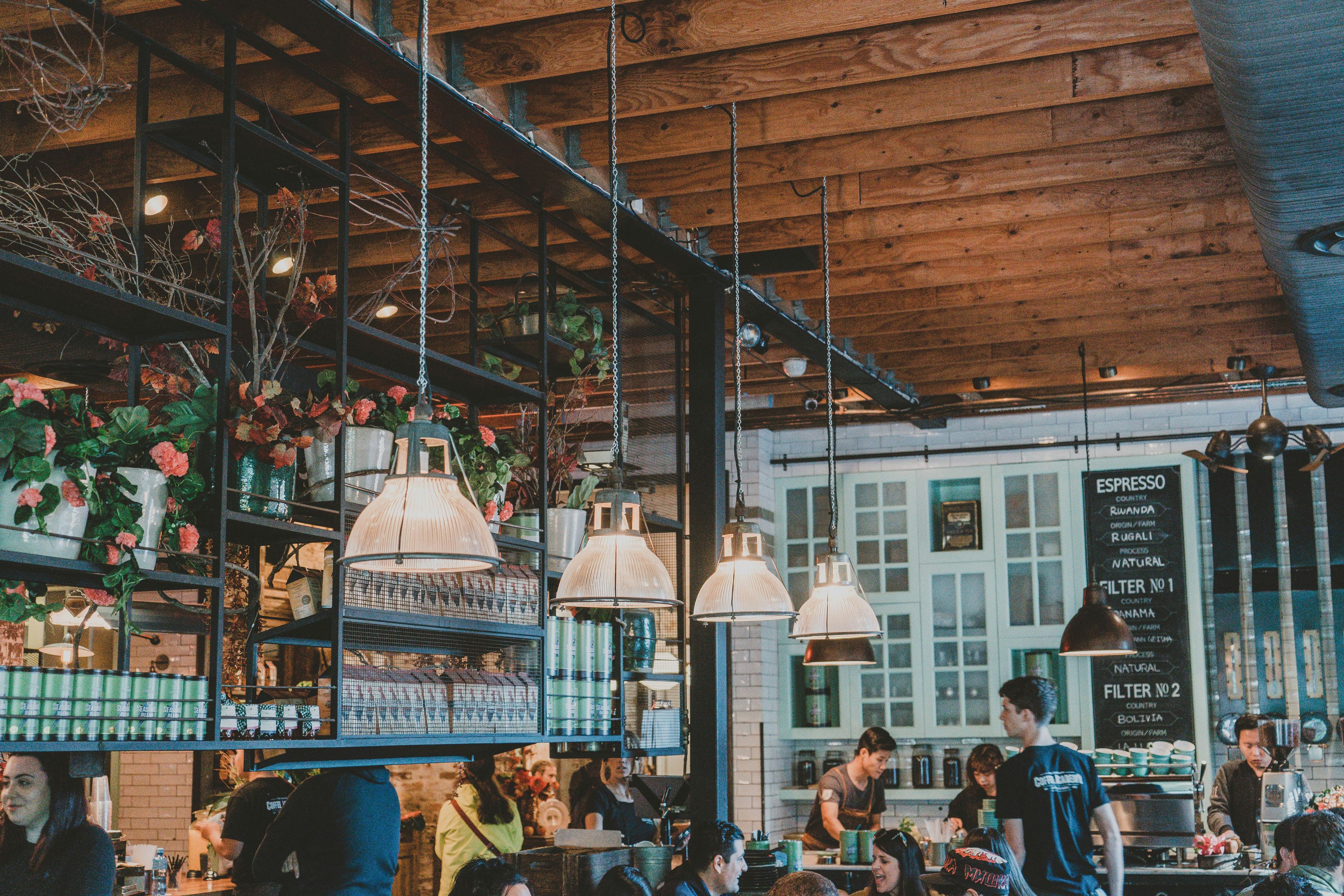SEO, which stands for search engine optimisation, is the process of optimising a website to appear in search results on Google, Yahoo, and other search engines for terms related to your core business. SEO is one of the best techniques for restaurants to get more customers. Restaurant SEO brings big results with less investment than other strategies, so optimising your web pages with your customers in mind will give an influx of business.
SEO for Restaurants: Comprehensive Strategies to Elevate Your Local Presence

 Written By
Written ByWhat is Restaurant SEO?
Restaurant SEO, when done correctly, will get your restaurant to the top of your local search results. If anyone searches for ‘best restaurant in London’, you want to make sure your restaurant is at the top of that page. Good SEO makes this possible.
Restaurant websites with strong SEO get more traffic, which means they’ll get more bookings and sales – both offline and online.
Why Does My Restaurant Need SEO?
For many restaurants, SEO is the best way to get new customers. Effective SEO enables potential customers to find your restaurant online, taking your business’s reach beyond its physical location.
When your restaurant starts appearing for related keywords, you can incorporate this into your restaurant marketing strategy by building pages dedicated to them.
The Benefits of Restaurant SEO
- Increases online visibility
- Boosts website traffic
- Rise in online orders and bookings
- Builds brand awareness
- Cost-effective marketing
- Keeps customers informed
10 Restaurant SEO Tips to Boost Your Website’s Ranking
To perform well with SEO, we advise you to focus your efforts on adhering to Google’s scoring system. While the exact formula isn’t published anywhere, Google has given a lot of indications on how companies can boost their rankings.
In the following section, we will break down 10 SEO tips to improve your restaurant website SEO.
Understand Your Target Audience
Before diving into keyword research and optimising your restaurant website, you need to understand your ideal customer. Understanding if you’re targeting families, students, businesspeople or tourists will help you to build a strategy that reaches your target audience.
To boost your target audience research, we recommend going one step further and conducting a competitor analysis. Knowing who your competitors are, what their marketing strategy involves and who their target audience is will give you an incredible advantage. This could reveal more avenues for your restaurant marketing strategy to explore, and more audiences to consider.
Develop a Keyword Planning Roadmap
When looking at restaurant keywords related to your business, you need to find specific words or phrases that customers use to search for businesses like yours. These search terms can be related to your restaurant’s name, location, cuisine and USPs.
Identifying and optimising for these keywords will help your venue appear in search results when people are searching for places to eat that align with your offering.
Keyword planning is the practice of laying out your target search terms and using a keyword planning tool to map out similar keywords you can also implement in your strategy. These tools can also help you prioritise certain keywords based on their search volume and keyword difficulty.
We recommend SEMrush or Google Keyword Planner as keyword planning tools that are easy to use and give accurate data.
Make sure you are using keywords organically in your copy, in relevant areas across your site, including:
- Page URLs
- Title tags
- Page headings and body text
With forward thinking and planning, restaurants can develop a strong set of keywords and set themselves up for long-term growth.
Prioritise Local SEO
Location-based searches on Google typically deliver results with the Google Maps carousel feature. Therefore, adding your website to directories, review sites and social media platforms will help in optimising your website to appear in these results.
Local SEO is one of the most critical aspects of boosting a restaurant’s search rankings. When potential customers search for places to eat, they usually include location-based queries like “restaurants near me” or “best Italian restaurant in London.” Optimising your site for local search results ensures that your restaurant appears when users are nearby or looking for specific cuisines in your area.
You should focus on making your restaurant visible in Google Maps by ensuring your name, address, and phone number (NAP) are consistent across all online directories. You should also include your city or neighborhood’s name throughout your site, such as in page titles and meta descriptions. Local SEO is crucial for driving foot traffic, especially for people exploring your area.
Set Up a Google My Business Profile
A Google My Business profile is essential for restaurants looking to boost their online visibility, particularly in local searches. By setting up and optimising your profile, your restaurant becomes eligible to appear in Google’s Local Pack, which showcases top local businesses.
Be sure to keep your profile updated with any changes, respond to reviews (both positive and negative), and add engaging photos of your dishes and interior to give potential customers a reason to visit. Regular updates and interaction will improve your visibility in local search results.
Make Sure Your Website is Mobile Responsive
With the growing number of people using smartphones to search for restaurants, having a mobile-responsive website is critical. Google’s algorithm prioritises mobile-friendly sites, so ensuring your site performs well on mobile devices will boost your SEO rankings.
Your restaurant’s website should load quickly, be easy to navigate on smaller screens, and allow for a smooth user experience—whether that’s browsing the menu, booking a reservation, or ordering food online. Don’t forget to optimise images, as large, slow-loading files can hurt your mobile SEO performance. If you’re considering image optimisation for your website, we boosted Azzurri’s mobile performance by 20%. Speak to a member of our team today to see what we can deliver for you.
Encourage Customer Reviews
Customer reviews are a key ranking factor in local SEO, as they serve as social proof of your restaurant’s quality. Positive reviews on platforms like Google, Yelp, and TripAdvisor can increase your visibility and build trust with potential customers. Google tends to rank businesses with higher review scores more favourably, particularly in local searches.
Encourage satisfied customers to leave reviews by offering small incentives like a discount on their next meal or simply by asking them to share their experience online. Responding to reviews—whether they are glowing or critical—shows that you care about your customers’ feedback, which can enhance your restaurant’s reputation.
Start Link Building
Link building is an effective SEO strategy that involves getting other reputable websites to link back to your restaurant’s website. These backlinks signal to search engines that your site is trustworthy and relevant, helping to boost your rankings. Focus on earning links from food blogs, local business directories, and influencer reviews to build authority.
You can also collaborate with local food bloggers, participate in community events, or get your restaurant featured in local news outlets to build links. The more high-quality backlinks you generate, the more search engines will recognise your restaurant as a credible and valuable resource.
Launch a Blog
Blogging is a great way to boost your website’s SEO by providing fresh, valuable content that targets relevant keywords. By regularly publishing blog posts on topics related to your restaurant’s cuisine, dining trends, local events, or seasonal menus, you can attract more visitors to your website and establish your business as an authority in the local food scene.
Use your blog to answer common customer questions, such as “best dishes for a romantic dinner,” or “how to pair wine with your meal.” This will not only improve your SEO but also engage your audience. Make sure each post is optimised with relevant keywords, meta descriptions, and internal links to other pages on your website.
Optimise Your Web Pages
Optimising your web pages is essential for ensuring that search engines can easily find and understand your content. This involves optimising the meta titles, descriptions, headers, and images on each page of your restaurant’s website. Use keywords naturally throughout your site, especially in title tags, headings, and alt-text for images.
Ensure that each page provides value to the user—whether it’s showcasing your menu, detailing your location and hours, or offering a clear call-to-action like “Book a Table” or “Order Online.” The more user-friendly your website, the better it will rank in search engine results pages.
Test Your Online Ordering System
For restaurants offering online ordering, having a seamless, well-optimised ordering system can make a huge difference in attracting customers and increasing conversions. Make sure your system is fast, easy to navigate, and mobile-friendly. A poor user experience—like slow loading times or a complicated checkout process—can drive potential customers away, impacting not only sales but also your SEO performance.
Regularly test your system to ensure it works smoothly, especially during peak hours, and look for ways to streamline the process. An efficient online ordering system helps improve customer satisfaction and can lead to better reviews and higher rankings on search engines.
Leveraging Local SEO for Restaurants
Local SEO is essential for restaurants aiming to attract nearby customers. This strategy focuses on optimising your website and online presence to appear in search results for geographically related queries. Leveraging local SEO involves creating content that targets specific locations, using local keywords, and optimising your Google My Business listing.
Getting listed on review sites, food apps, and local directories can also enhance your local visibility. Additionally, engaging in community events and promoting your involvement online can lead to more local backlinks, further boosting your search rankings.
Common Mistakes to Avoid with Restaurant SEO
When working on your restaurant’s SEO, it’s important to avoid common mistakes that could hinder your efforts. Some of these mistakes include:
- Keyword Stuffing: Overloading your content with keywords can lead to penalties from search engines.
- Ignoring Local SEO: Failing to optimise for local searches means missing out on a key demographic—nearby diners.
- Not Updating Content: Outdated information, such as incorrect hours or old menu items, can negatively impact user experience and rankings.
- Neglecting Mobile Optimisation: With a growing number of mobile users, a non-mobile-friendly site will hurt your SEO and user engagement.
- Skipping Meta Descriptions: Meta descriptions help search engines understand your content and improve your click-through rate; neglecting them can lower your ranking.
By being mindful of these mistakes and continuously improving your strategy, you can set your restaurant up for SEO success.
In Summary…
SEO is an essential tool for restaurants looking to increase their online presence and attract more customers. From understanding your target audience and developing a keyword strategy to optimising for local searches and encouraging customer reviews, implementing the right SEO practices will help boost your website’s rankings. Consistency is key—by regularly updating your content, engaging with customers, and improving your website’s user experience, your restaurant can achieve long-term SEO success.